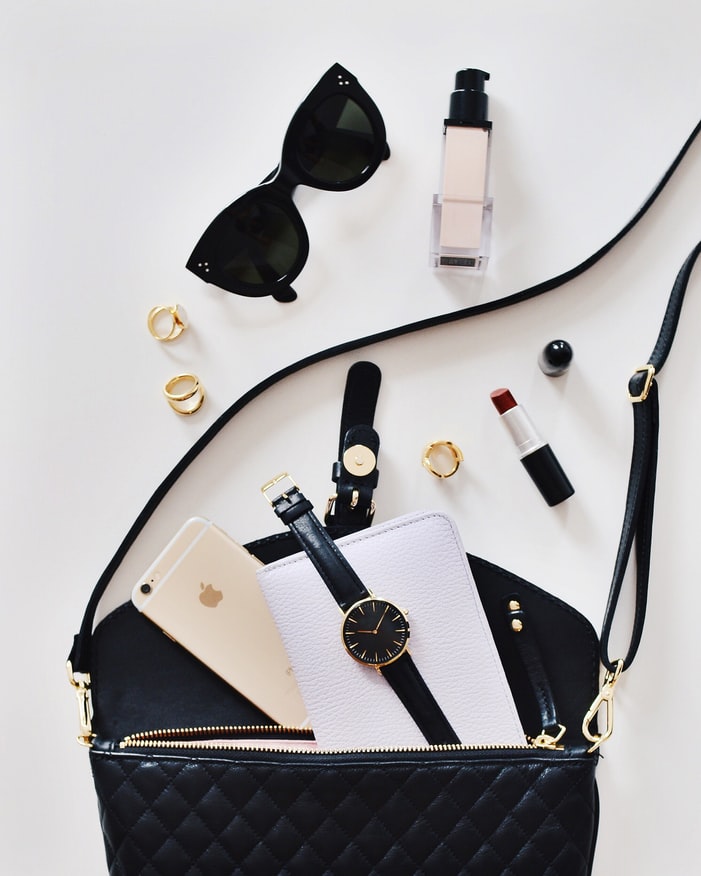As the world continues to live through a global pandemic, people have been trying to make the most out of the time spent stuck at home. Whether this means connecting with loved ones more or working on personal hobbies and interests, there has been a collective effort to focus on things that truly matter in their lives.
Interestingly, a specific lifestyle allows you to make the most out of many things—with less! Minimalism, which has become a popular practice in recent years, is about having only what you need to go about daily life. This doesn’t necessarily mean having the least possessions, but rather having things that truly add value to your life.
When you think of minimalism, the term “decluttering” probably comes into mind. However, since this is also a common term used in cleaning and organizing spaces, there can be a tendency to mistake minimalism as merely the physical removal of unwanted items. However, minimalism is more than that. It extends towards your decisions, relationships, and even your overall mindset.
By letting go of the unnecessary, minimalism allows you to live a more focused and purposeful life, even if it means having less. If you’re looking to achieve this, you’re in luck! This article will list down valuable minimalist lifestyle choices that will let you get more out of life. To start, let’s have a quick rundown of what minimalism is.
The Concept of Minimalism
Minimalism is a term that dates back to as early as the 1960s. It was developed as a form of abstract art in the U.S., mostly illustrated through artworks composed of simple geometric shapes. Instead of reflecting “outside reality,” minimalism as an art form aimed to let viewers respond to what was simply in front of them.
In other words, minimalist art served as a purified form of beauty, presenting the art as what it was—truth, order, simplicity, and harmony.
Today, minimalism has evolved and been attributed to many things—from design, style to even a way of living. It can mean eliminating or rehoming possessions you no longer need or decluttering mentally and emotionally by focusing on what’s truly essential.
Fundamentally, minimalism uses the simplest and fewest elements to create maximum effect. When translated into a lifestyle, it intends to remove clutter from all facets of life.
5 Lifestyle Choices That Let You Live Large While Having Less
Now that you understand what minimalism is, it’s time to go beyond that by learning what it can do for you. Remember that minimalism aims to bring a positive change by eliminating distractions and other things that don’t bring value to your life.
The following lifestyle choices will show you how minimalism can bring that positive change in a more practical (and economical!) sense.
- Less stress with a more compact lifestyle
Having exactly the things you need and knowing where they are will grant you much-needed peace of mind. After all, the more things you have means having to spend more time thinking about them. For instance, moving and packing will be much easier if you don’t have extra ten pairs of shoes (that you barely use) or a giant box dedicated to random stuff.
A compact lifestyle should also extend towards all parts of your life. When your schedule is packed with meetings, errands, and activities, you can feel overwhelmed, anxious, and exhausted. By freeing up more space in your day and letting go of non-essential tasks, you get to move and think freely while also giving you more time for relaxation.
Thus, living less is living with less stress, and less stress is beneficial for your overall well-being. In fact, reducing stress is one of the main lifestyle changes to prevent heart disease. So, if your health is a priority, then minimalism can be a good lifestyle to adopt.
- Save more with intentional spending
Minimalism can allow you to become more mindful of how and where you spend your money. For example, say you’re looking for a functioning, quality piece of technology. The minimalist approach means looking for options that will save you the most money while still offering you the same level of function and quality.
For instance, many refurbished electronics have the same guarantee, warranty, and customer service as brand new ones. Furthermore, since they roll out a bit later than brand new models, you’ll already be aware of the pros and cons of the model you’re considering through reviews.
In effect, you get to pick the best option while saving money on its price—eliminating expenses that cover more than what you need.
- Buying less means buying better
Being a minimalist doesn’t mean you can’t shop again. Instead, it changes how you approach buying by steering clear from unnecessary purchases. Instead of going for trendy pieces, why not invest in classic, quality brands that will last longer?
Technology has allowed the production of more quality products across every industry—especially fashion. Buying better will all boil down to choosing the pair of jeans that will save you money and stand the test of time.
- Quality over quantity—even in relationships
As mentioned above, decluttering should apply to all parts of your life, including relationships. Interacting with chronically negative, unsupportive, toxic, or abusive people isn’t healthy for anyone in the long run.
These people are only distractions since they put you down and prevent you from reaching your full potential. Dealing with them will use up valuable energy and resources that are better directed elsewhere. Remove or reduce the time you spend with these people and stay close to supportive, positive influences instead.
- Focus on the things that matter by decluttering
When your space is full of items you don’t need, the things that hold real value tend to get lost in the clutter. For instance, when your belongings are scattered everywhere, you fail to see the most important ones to you. When you declutter, prized possessions such as photos or keepsakes from your loved ones can take center stage.
Since decluttering will help you recognize the difference between what you need and what you don’t, you can eventually apply that way of thinking to other parts of your life. Having more of what’s truly necessary will allow you to spend less time working to afford the unnecessary. This will allow you to focus on what truly matters.
For example, you’ll get to spend uninterrupted time working on yourself or with friends and family—bringing joy and fulfillment into your life.
Minimalism is Living a Life Full of Gratitude
Since minimalism is about letting go of the non-essentials, everything you have after this will surely add value to your life in one way or another. You now get to have more time, space, and money—and you’re free to do whatever you want with them. Lastly, by letting go of baggage that has previously weighed you down, you become free mentally, physically, emotionally, and spiritually.
Appreciating these things will give you a sense of clarity and contentment. Thus, if you want to make the most out of minimalism, you have to become aware that what you have is enough. Only then can you decipher what truly matters in life and cultivate a better shot at true happiness.
Author Bio
Gary Everrett
Gary Everrett is a Tech Geek who is a writer by passion. Mostly he writes about topics revolving around the latest gadget and technology. On his free time, he likes to read sci-fi novels and play golf.















